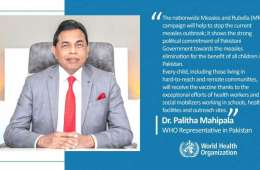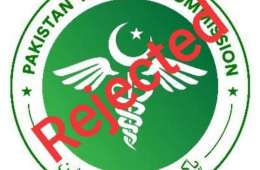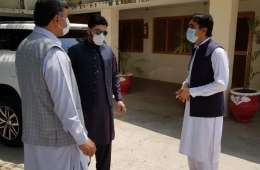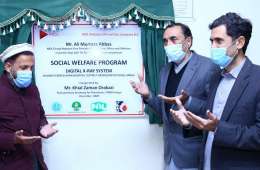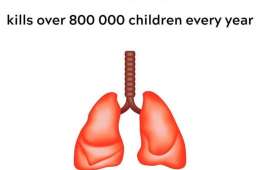KP Govt 'Sehat Sahulat Program', Free Health Facilities For 1 Million Families Of FATA District
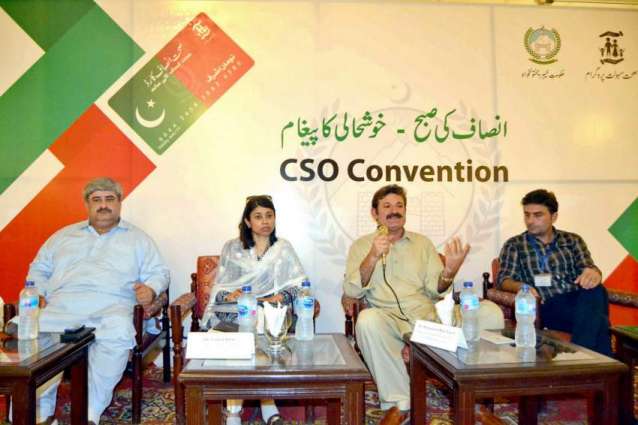
Khyber Pakhtunkhwa Government has achieved another milestone to realise the vision of Prime Minister Imran Khan by launching Sehat Sahulat Program that offers free health facilities to more than 1 million families of newly merged districts of erstwhile FATA.
Dr Riaz Tanoli, Head of Sehat Sahulat Program KP, shared these views during a CSO convention jointly organized by Individualland, a research-based consultancy and advocacy group and CRS, a strategic communications company here at a local hotel.
Ms Rakhshanda Naz, KP Ombudsperson, Protection of Women against Harassment at Workplace; Dr Maryam Bibi, Chief Executive, Khwendo Kor; Zaheer Khattak, Executive Director, United Rural Development Organization; Dr Khalid Masood, Director, LRH and representatives of more than 70 Civil Society Organisation (CSOs) from across KP participated in the convention.
Highlighting the significance of the Sehat Sahulat Program, Dr Tanoli said, “Under this program, a medical cover of worth Rs 720,000/- per annum will be available to all the national identity card holder families of the tribal areas. Upon registration at our Beneficiary Enrolment Centres, spread all across Tribal Districts, each tribal family will get a ‘Sehat Insaf Card’ which can be used to get free medical treatment at any of the selected government and private hospitals all across Pakistan including that of tribal areas.
“During admission in a hospital the patient will not have to pay a single penny against prescribed medical treatment”, Dr Tanoli added. “We will ensure that each family gets equal treatment at any of the government and private hospitals”, he concluded.
Dispelling certain misgivings pertaining to the program, Syeda Sundas, the event moderator, said that the Sehat Insaf Card will only be used for such medical treatment under which hospital admission is mandatory. This includes pregnancy or delivery, accidental wounds, fire incidents, heart diseases, diabetes and dysfunction related to heart, liver, lungs and kidneys except transplants.
Ms Sundas clarified that no cash payment will be made to any family in case of not availing medical facilities; however, an admitted patient will be given Rs 1,000/- for three times in a year in terms of transportation. Besides this, if a patient passes away during treatment at any of the hospitals, the grieved family will be given Rs 10,000/- for post-death procedure.
While explaining the usage of the Sehat Insaf Card, Dr Khalid Masood, Director, Lady Reading Hospital said, “The registered tribal family will have to bring along Sehat Insaf Card, National Identity Card and ‘B’ Form, in case of children, to any selected hospital and show these documents to the program representative available at the reception of the designated hospital. The representative will then guide the patient to the respective department”.
Dr Rakhshanda Naz while urging the provincial government regarding the treatment of female tribal patients said, “As we all know that most of these ladies are not very literate, thus they face lot more problems at public service hospitals. The government should take extra measures to manage such unavoidable circumstances”.
Dr Maryam Bibi in her speech thanked the provincial government for providing such wide-ranging health facilities to the tribal families. “This is a remarkable initiative however, I believe, a lot more to be done in this regard in coming day”, she said.
Syeda Aliya Azhar, Assistant Media Manager, Khyber Teaching Hospital briefly addressed the difficulties which could be faced by any tribal family while going to any selected hospital for admission. “Representatives of this program are highly efficient and are trained to deal respectably with the tribal families. We are determined to provide them every possible support”, he said.
Zaheer Khattak, while explaining current health standards, emphasized over the vital role of civil society organizations towards guiding the government for improved basic health facilities.
The representatives of various civil society organizations appreciated the provincial government and promised to create awareness within their communities regarding the Sehat Sahulat Program.


